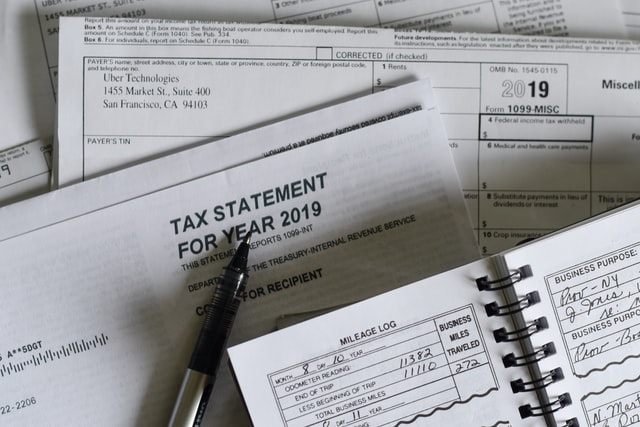30 percent tax ruling in the Netherlands
Foreign employees hired by a Dutch employer may be eligible for the so-called 30% tax ruling. Under this arrangement, up to 30% of their gross salary can be paid tax-free, significantly increasing your net spendable income.

We explore in this section
Changes in the 30% ruling in 2024 and 2025
On Friday October 27th of 2023, the Dutch Parliament adopted two disruptive amendments to the 2024 Tax Plan with regard to the 30% ruling. On December 19th, the Tax Plan 2024 including these amendments was approved by the Senate and is now final. What are the changes?
Background information on the 30% ruling:
The 30% tax ruling (or 30% facility) is the main tax advantage for expats coming to The Netherlands. It provides for a tax-free allowance to an extent of (up to a maximum of) 30% of the salary. Having the 30% ruling also allows the expat for an exemption on the Dutch wealth tax on worldwide assets and Dutch tax on substantial interest income from foreign entities: this is called the partial foreign taxpayer scheme. The term of the 30% ruling is 5 years. Expats will need to meet certain criteria to be entitled to the 30% ruling.
Scaling back the 30% ruling
Last year it was announced that, as from January 1st of 2024, the salary to which the 30% ruling can be applied will be capped at the so-called Balkenende-norm (named after a former prime minister): this is the maximum salary for public servants. The Balkenende norm salary is indexed each year and will amount to € 233.000 gross in 2024. A transitional arrangement applies for employees who had an active 30% ruling in December 2022: the cap will only apply to them as from January 1st of 2026.
As said, additional amendments were announced on October 27th. and will also enter into force as per January 1st of 2024.
Firstly, the 30% ruling will get a graduated scheme: A 30% tax-free allowance applies in the first 20 months, a 20% tax-free allowance for the next 20 months and a 10% tax-free allowance for the last 20 months of the five year term. A transitional arrangement applies to employees to whose salary the 30% ruling is applied in December 2023; these employees will not be confronted with these adjustments during the term of their ruling.
Secondly, the amendment will terminate the aforementioned partial foreign taxpayer scheme for 30% ruling holders as of 2025. This means that the exemption on foreign-based Box 2 income (tax on income from more than 5% shareholding) and Box 3 income (tax on the deemed income of worldwide assets) will end. Here too a transitional arrangement applies to employees to whose salary the 30% ruling is applied in December 2023: they will only be confronted with this change as per 2027.
It's important to know that - if an employee that has the 30% ruling changes employers during the term of the ruling – he/she can still use the abovementioned transitional arrangement if he/she enters into a new qualifying employment with a Dutch employer within 3 months.
What is the criteria for an employee
As of 2025, to qualify for the 30% tax ruling, an employee's taxable salary must not fall below €41,954. A reduced minimum of €31,727 applies to employees under the age of 30 who have completed a Master’s degree. These thresholds apply after taking the 30% ruling into account, meaning your gross salary must be high enough to still meet these minimums once the tax-free allowance is deducted.
For scientific researchers, academic staff in scientific education, or medical doctors in training, no minimum salary requirement applies. However, eligibility for this exception depends on the type of institution or employer and must meet specific criteria set by the Dutch tax authorities.
To be eligible for the ruling, the employee must possess specialized expertise that is considered scarce or unavailable on the Dutch labor market.
Please note:
- Individuals hired from within a 150 km radius of the Dutch border generally do not qualify for the 30% ruling.
- A 25-year look-back period applies: any prior residence or work in the Netherlands within the last 25 years is subtracted from the maximum 8-year duration of the ruling. As a result, most Dutch nationals are not eligible.
Application for the 30% rule
The application for the 30% rule must be made within 4 months after starting in the job. If the application is made after the four months period the ruling can only be granted from the next month after the application. This longer period is then deducted from the maximum period of 8 years.
During the 8 years period the Revenue Service is entitled to check if the employee still meets the criteria of the ruling. If not then the ruling is ended.

Employees working in the Netherlands under the 30%-ruling
Employees working in the Netherlands under the 30%-ruling are entitled to the following tax advantages:
1. approximately 30% of their gross salary is paid as a tax-free '30%-cost reimbursement';
2. for other income elements than salary, they can choose for the so-called deemed non resident taxation.
3. Capital gains (e.g. on the sale of a real estate or shares) are not taxable in the Netherlands.
The taxation on Item 2. depends on whether the employee is considered a resident tax payer or a non-resident tax payer. In principle:
1. resident tax payers are employees who are living in the Netherlands;
2. non-residents tax payers are employees who are not living in the Netherlands.
Item 1. Resident tax payers.
Practically every resident taxpayer in the 30%-ruling will choose for the so-called partial taxation. This means that only a limited number of income elements are taxed in the Netherlands, like: a. the salary from Dutch and if applicable also foreign employment (incl. a company car);
b. income from a main residence in the Netherlands. (if your main residence is abroad, you normally are a non-resident.);
On the other hand, they are entitled to deduct extraordinary expenses like medical expenses, major charitable donations and alimony payments. And besides that they have the claim on the general tax credit for their spouse (so-called 'heffingskorting').
Item 2. Non-resident tax payers.
In principle you are considered a non-resident if you and/or your spouse and family are (still) living abroad (outside the Netherlands). Although you have the option to be considered a resident taxpayer. Therefore we will give you some general remarks regarding these 2 different fiscal options:
a) non-residents are not liable for Dutch taxation for foreign working days, holidays and sick days (this means days spent outside the Netherlands). These days are taxable in their home country. The difference in the Dutch and home country tax rates could lead to a tax benefit; or
b) non-residents have the option to be taxed like resident tax payers (partial taxation like in Item 1.). This implies that they loose the opportunity to deduct the foreign days as mentioned earlier, but might be able to deduct the mortgage interest in their foreign home. The request for the partial taxation can be made together with the application for the 30%-ruling, but ultimately when the tax return is filed.
FAQ about 30% tax ruling
How long can you claim the 30% tax ruling?
You can claim the 30% tax ruling for 5 years. This has changed in 2019. Before this used to be 8 years.
What if you change jobs?
This is not a problem, you do have to reapply for the 30% ruling. If your conditions didn’t change this will be ok.
Does the 30% tax rule apply for self-employed workers?
No, unfortunately. The rule is only for employees.
Do i need to take my Driving license test again?
When you benefit from the 30% ruling, it is possible to exchange your foreign driving license for a Dutch license without having to take the test again.
What is the 30 tax ruling in the Netherlands?
The 30 tax ruling is available for employees who are recruited from outside the Netherlands to work temporarily here. Depending the conditions of the 30% facility, they are exempt from paying tax on up to 30% of their salary.
Recommended experts
taxt
taxt provides online income tax filing services for individuals in the Netherlands. Our tax experts will handle everything for you. All you need to do is answer a few simple questions, register, upload the requested info and wait for our tax specialists to process your tax return optimally. You can be done with your annual income tax filing in less than 10 minutes. Online. Easy. Affordable.


